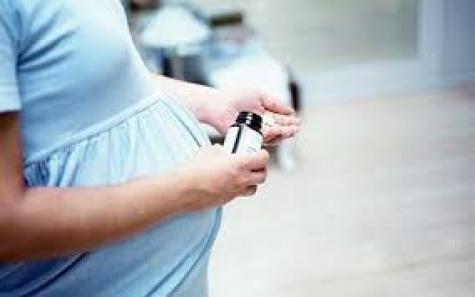Pregnant women taking herbal medicines may be unaware of the potentially harmful side effects, according to CHOICE. The consumer advocacy organisation says that 10% of the women taking herbal medicine are not taking the recommended doses of folic acid and iodine.
"Given some herbs are capable of causing adverse pregnancy outcomes such as miscarriage, preterm labor and birth defects it is crucial pregnant women educate themselves on potential impacts on their health”, says CHOICE spokeswoman Kate Browne.
“There is a widespread perception that these products are natural and therefore safe. Talking to your doctor about what herbal medicines and supplements you are taking is your best bet in reducing health risks.”
A CHOICE investigation found that some products recommended by pharmacy and health food store assistants for morning sickness, including Blackmores and Nature’s Own ginger tablets for travel sickness, provided no dosing instructions for pregnant women, potentially leading to doses exceeding the safe maximum of 1 to 2g per day. Large doses can cause thinning of the blood and heartburn.
CHOICE recommends pregnant woman:
- Watch their vitamin A intake
- Avoid excessive vitamin B6 intake as it has been linked to birth defects involving the baby's arms, legs and nerve development.
“Pregnancy multivitamins may have all the supplementary support that you need. Be sure to check the B6 dosage listed as you may not need to take an additional supplement,” says Ms Browne.
CHOICE also found that while health stores and pharmacies recommend folic acid, only half recommended iodine, and only 14% of the stores cautioned about vitamin A intake, which can be toxic when taken at high levels. A few shops acknowledged herbal medicines and essential oils can be dangerous, and that it may be best to avoid them.
“Advice on vitamins and minerals was mixed, highlighting the need for pregnant shoppers to educate themselves before purchasing supplements. This may have been due to the casual encounter of the shadow shop more than any shortcoming. The fact they pointed it out at all is to be commended,” said Ms Brown.
“A healthy diet is generally enough to ensure pregnant women and their foetuses receive adequate vitamins and minerals, but the two supplements recommended for all pregnant women are folic acid and iodine.”
The Royal Women’s Hospital in Melbourne recommends caution with the herbal medicines listed below.
Herbal medicines for which the Royal Women’s Hospital Melbourne recommends caution
Aloe vera
- While OK as a topical gel, aloe vera latex taken orally in powder or liquid form may cause low blood sugar, uterine contractions or miscarriage. There’s not enough information about safe doses in pregnancy, so it’s probably best to avoid aloe vera juice and supplements.
Black cohosh
- May cause early labour, so avoid in early pregnancy.
Evening primrose oil
- Limited safety information
Fenugreek
- While OK to use in normal quantities in cooking, larger quantities found in supplements may cause miscarriage or early labour.
Garlic
- As used in a cooking is fine, but avoid large doses in supplements, as they may cause bleeding, miscarriage or early labour.
Ginger
- OK in cooking and in supplement doses of 1 to 2g per day. Large doses can cause thinning of the blood and heartburn.
Ginseng
- Should be avoided during pregnancy, especially early pregnancy, as it can cause serious adverse events.
Liquorice in large quantities, as in liquorice extract or liquorice root
- Can cause miscarriage and early labour. Black liquorice sold as confectionery may contain the extract, or may be flavoured with aniseed.
Raspberry leaf
- Is said to help reduce labour, although there’s little evidence to support this, nor is there much information about its safety. Avoid in early pregnancy.
Spirulina
- Little is known about its safety during pregnancy, so it’s best to avoid it or seek advice from your doctor.
St John's Wort
- May reduce birthweight, and interferes with certain medicines. Talk to your doctor before taking it while pregnant.
Valerian
- There’s a lack of safety information about taking it in pregnancy. Talk to your doctor first.
As always, consult your medical practitioner for professional advice.


















__small.png)










